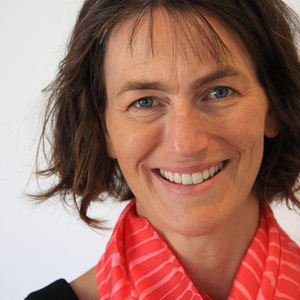It’s Valentine’s Day, and love is . . . Well, what is love?
“Love is our true destiny” (Thomas Merton).
“Love isn’t something you find. Love is something that finds you” (Loretta Young)
“Love is a many-splendored thing” (American film title).
“Love is patient, love is kind” (1 Corinthians 13)
“Love is friendship that has caught fire” (Ann Landers)
“Love is a synchrony between your and the other person’s biochemistry and behaviors” (Barbara Fredrickson).
Wait, what? You won’t find that last quote on a Hallmark card. And you won’t be saying it to your significant other today, either. “Hi, Sweetie. I love our biochemical synchronicity. And here’s some chocolate.”
Fredrickson, the first winner of the Templeton Prize in Positive Psychology (in 2000), is principal investigator of the Positive Emotions and Psychophysiology Lab at the University of North Carolina, Chapel Hill. So she knows a thing or two about love from a scientific perspective. At Greater Good, Fredrickson writes:
“[L]ove, as your body sees it, is the momentary upwelling of three tightly interwoven events:
- A sharing of one or more positive emotions between you and another;
- A synchrony between your and the other person’s biochemistry and behaviors;
- A reflected motive to invest in each other’s well-being that brings mutual care.
“My shorthand for this trio is positivity resonance.”

Barbara Fredrickson
But Frederickson’s not all academic about love. She weighs in on romantic love too:
“Here’s something that’s hard to admit: If I take my body’s perspective on love seriously, it means that right now—at this very moment in which I’m crafting this sentence—I do not love my husband. Our positivity resonance, after all, only lasts as long as long as we two are physically or emotionally engaged with one another. Bonds last. Love doesn’t.
“The good news is that love is a renewable resource. That bond I share with Jeff forges a deep and abiding sense of safety within our relationship, a safety that tills the soil for frequent moments of love. Knowing now that, from our bodies’ perspective, love is positivity resonance—nutrient-rich bursts that accrue to make Jeff, me, and the bond we share healthier—shakes us out of any complacency that tempts us to take our love for granted, as a mere attribute of our relationship. Love, this new view tells us with some urgency, is something we should re-cultivate every morning, every afternoon, and every evening.”
As for cultivating love, Fredrickson explores those ideas in her book, Love 2.0. And a new article at Greater Good offers suggestions on “How to Increase the Love in Your Life” with links to a handful of research-tested quizzes, including a Compassionate Love Quiz.
In other lovely news, a Templeton-supported research project at Penn State determined that Americans agree on what makes people “feel the love”—small, non-romantic gestures do the trick, while controlling behaviors definitely do not.
“Whether we feel loved or not plays an important role in how we feel from day to day,” said researcher Saeideh Heshmati. “We were curious about whether the majority of Americans could agree about what makes people feel loved on a daily basis, or if it was a more personal thing. Our results show that people do agree, and the top scenarios that came back weren’t necessarily romantic. So it is possible for people to feel loved in simple, everyday scenarios. It doesn’t have to be over-the-top gestures.”
If you’re really looking for romance tonight, curl up with your loved one by the fire and read this technical paper from PLOS Journal aloud to each other: “A Cognitive Psychometric Approach to the Consensus on Felt Love.” Or, maybe wait till another day on that.
Meanwhile, in non-human love news, check out “What Pigeons Teach Us About Love” at Nautilus. And from Aeon, this three-minute video on a literal once-in-a-lifetime ladybug love-fest.
And finally, just for fun, the day calls for a replay of what many consider the best love song in pop music history, with well over half a billion views: